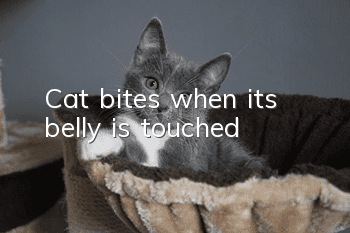Will a cat's personality be affected after being neutered?

There is a popular saying that "neutering can change a cat's personality", but most parents are skeptical of this statement. If cats’ personalities were divided into two categories, they would be the gentle and cute type and the outgoing and free-spirited type. The former is very well-behaved and rarely gets angry. The latter are collectively known as "drama queens", who perform cat-and-mouse dramas alone at home every day.
Does neutering really affect a cat’s personality?
In fact, when a cat enters estrus, its personality and mood are easily affected, and it will also show symptoms of anxiety, and its mood fluctuates greatly. They like to meow by the window and "urinate" anywhere to mark it. For male cats, neutering is a form of castration surgery that involves removing the male cat's balls, which contain a male hormone that controls their sexual behavior and emotions. If they have been in estrus for a long time, then if they are neutered at this time, the cat will definitely need time to adapt.
In general, neutering will not change the cat's personality. It can only reduce the probability of those behaviors occurring, so that they no longer have an estrous cycle of ups and downs in mood, and it will also make the cat's mood more stable. It can be seen from this that my friend lost Maomao's trust, maybe because she forgot to act.
Now that we are talking about sterilization, let’s talk about the pros and cons of this surgery. Many people still think that it is very harmful to the cat’s body and they should not do it if it can be avoided. In fact, nowadays, pet sterilization has been advocated by various organizations and associations. It will not only make them live longer, but also bring many benefits. Let us give you an example:
What are the benefits of sterilization?
Female cat:
· Reproduction control. It is important to spay or neuter a female cat before she reaches an age where she can breed. Depending on the breed or individual development, a cat's estrus may occur around six months or earlier. Three litters of kittens can be produced in about a year.
· Control barking. If a female cat is not pregnant, she will "meow" every three weeks. If you are in a multi-cat household, the meow of one female cat will affect other cats, leading to fighting or joint vocalizations. .
· Health problems. Unneutered female cats are more likely to suffer from uterine infections and mammary tumors than neutered cats. And if you breed after suffering from an infectious disease, it will also be transmitted to its kittens.
Male Cat:
· Control urination. Male cats that have not been neutered may urinate and mark their territory.
· Health problems. Every time it is in estrus, a male cat will have the desire to "escape" and will make sounds in order to win over the female cat. This will not only bring danger to it, but also affect the surrounding neighbors.
· Reduce combat. Fights may break out when unneutered cats are threatened territorially.
· Physical changes. The urine of unneutered male cats has a pungent odor, which will become more normal after neutering. It will also make the cat itself cleaner and smell less.
What should you know before sterilization?
· Neutering should be performed when cats are over 6 months old.
· Make sure the cat has been vaccinated for more than 10 days before surgery.
· Avoid surgery during estrus.
· Carry out comprehensive preoperative examinations to ensure the safety of the cat’s surgery.
· Before the operation, the cat should be deprived of water for 4 hours and fast for 8 to 12 hours to prevent the cat from being full and causing various discomforts during the operation.
· Trim the cat’s nails before taking it to the hospital to prevent injury to the doctor.
· Prepare cat bags, warm items, changing pads, Elizabethan rings and other items.
Aftercare:
· Give cats a comfortable and quiet indoor environment,
· Do not engage in strenuous exercise within 2 weeks after sterilization to prevent the wound from opening.
· Treat their wounds with iodine, twice a day.
· Pay attention to the healing condition of the wound. If there is blood oozing out, it may be that the wound has collapsed or is infected. You should go to the hospital for follow-up consultation and examination in time.
· Do not take a bath within 10 days of wound recovery after surgery to avoid infection of unhealed wounds.
·Do not remove the Elizabethan ring during the recovery period to prevent the cat from licking its own wounds and causing wound infection.
In general, neutering can not only make cats emotionally stable, but also help them live longer and healthier lives!
- What is the personality of an Abyssinian cat?
- Cat eyebrows are symmetrically bald on both sides
- How to train a cat not to go to bed? How to train a cat not to go to bed!
- How to scientifically raise cats during pregnancy? Will a pregnant woman get infected if she is scratched by a cat?
- How to treat feline seborrheic dermatitis?
- Symptoms and prevention of pica in cats, a must-read for cat owners!
- 6 Signs Your Cat Needs “Deworming”
- What causes ascites in cats? Treatment of nutritional ascites in cats!
- The female cat keeps meowing at her owner after giving birth
- What are the common types of skin diseases in cats?



